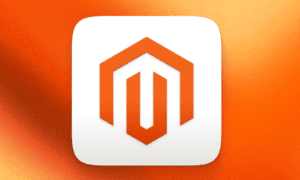Introduction
Are you ready to embark on your online business journey and dominate the e-commerce landscape? Look no further! In this article, we’ve curated a list of the top 10 e-commerce platforms that are essential for your digital success. Whether you’re a newcomer or seeking an upgrade, these platforms offer a spectrum of features, from stunning website templates to robust marketing tools.
Ecommerce Platforms: A Game-Changer in Digital Commerce
The evolution of e-commerce platforms has reshaped the way businesses operate and connect with consumers in the online realm. With the surge in digital technology, consumers increasingly favor online shopping, making e-commerce an integral facet of any successful business strategy. In simple terms, an e-commerce platform is a software application that empowers businesses to establish and oversee their online store.
Diverse Ecommerce Platforms
The market is flooded with numerous e-commerce platforms, each boasting unique features and capabilities. Let’s delve into an introduction to some of the top-tier e-commerce platforms that demand your attention.
Magento:
Magento stands out as a popular open-source e-commerce platform, serving over 250,000 merchants globally. Its feature-rich offering includes customizable themes, multi-language support, seamless payment gateway integration, advanced marketing tools, and a robust community support system for troubleshooting and customization.
Why opt for an e-commerce platform?
Choosing the right e-commerce platform is pivotal for any business aiming to establish or enhance its online presence. With a plethora of options available, pinpointing the platform that aligns with your business needs can be overwhelming. Let’s explore key reasons why opting for an e-commerce platform is imperative for your business’s success.
1. Scalability and Flexibility:
E-commerce platforms shine in their scalability and flexibility, adapting seamlessly as your business expands. A robust e-commerce platform equips you with tools to scale operations effortlessly, ensuring uninterrupted website functionality and peak performance.
2. Cost-Effectiveness:
E-commerce platforms offer a cost-effective solution compared to building an online store from scratch. With affordable pricing plans devoid of hidden costs or lengthy commitments, businesses can access essential features to run a successful online store while saving on web development expenses.
3. User-Friendly Interface:
Reputable e-commerce platforms prioritize user experience with a user-friendly interface, empowering non-technical users to manage their online store independently. Tutorials and guides provided by these platforms facilitate a smooth start, reducing reliance on developers for routine changes.
4. Mobile Responsiveness:
In the digital age, a mobile-responsive website is paramount. Ecommerce platforms provide responsive design templates, ensuring a consistent and enjoyable shopping experience across diverse devices.
5. Secure Transactions:
Security is a top concern for businesses and customers alike. Ecommerce platforms implement robust security measures, including SSL encryption, secure payment gateways, fraud detection tools, and regular security updates, guaranteeing safe transactions.
Top 10 Ecommerce Platforms
As businesses strive to establish a global online presence, e-commerce platforms have become indispensable. Here are the top 10 e-commerce platforms that demand your attention.
1. Shopify: Shopify caters to businesses of all sizes with its user-friendly design tools, secure payment gateways, and robust inventory management features. Its extensive range of apps and integrations enhances online store functionality.
2. WooCommerce: Powered by WordPress, WooCommerce offers flexibility and customization. Ideal for businesses using WordPress as their CMS, it provides various themes, extensions, and plugins for a unique shopping experience.
3. Magento: With a massive user base, Magento is highly scalable, catering to larger businesses. It boasts advanced features like multi-store capabilities, robust SEO tools, and extensive customization options.
4. BigCommerce: A cloud-based platform suitable for mid-sized to enterprise-level businesses. BigCommerce offers an intuitive interface, built-in marketing tools, and integration with major marketplaces like Amazon and eBay.
5. SquareSpace: Known for its website builder, SquareSpace also offers robust e-commerce features. Its drag-and-drop interface facilitates the easy creation of visually appealing online stores, coupled with built-in SEO tools.
6. Volusion: Tailored for small businesses, Volusion offers affordable pricing plans, a user-friendly interface, customizable templates, social media integrations, and marketing tools.
7. 3dcart: A feature-rich platform catering to businesses of all sizes. 3dcart offers over 200 website themes, advanced SEO tools, and flexible payment options.
8. Wix: Renowned for its website builder capabilities, Wix also provides an e-commerce solution with customizable templates, payment options, and built-in marketing tools.
9. PrestaShop: An open-source platform suitable for small businesses, PrestaShop offers features like inventory management, customer tracking, and multilingual support.
10. OpenCart: Another open-source solution, OpenCart, is ideal for small to medium-sized businesses. It offers customization through extensions and themes, coupled with robust SEO features.
Conclusion
When selecting an e-commerce platform, consider factors like pricing, design options, integrations, SEO capabilities, and customer support. Additionally, envision your long-term goals and scalability needs when choosing a platform that grows seamlessly with your business. The right e-commerce platform is your gateway to a thriving online presence and global success.



































